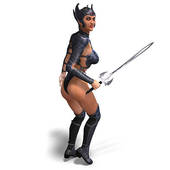There are editors and then there are EDITORS. There are many types
of editors - some administrative, some improve grammar, some evaluate potential
manuscripts, etc. Some are for hire to writers while others work in publishing
houses, literary agencies or the publishing
operations of universities and professional institutes.
Literally a forest of editors. Here is a representative, but, by
no means complete list:
Assignment editor
Authors’ editor
City editor
Copy editor
Developmental editor
Duty editor
Editor-at-large
Editor-in-chief
Literary editor
Managing editor
Picture editor
Executive editor
Acquisitions (or Commissioning) editor
Editors are not normally publishers but are sometimes part of a
publishing team within a publishing house. Usually an editor deals with content and a publisher deals with the financing, risk,
printing and making the product available.
Tonight we will be discussing acquisitions editors with links
describing other types.
This by W. Terry Whalin:
What's an acquisitions editor?
How can I
help this editor?
Sometimes when I introduce
myself, I'll say that I'm an acquisitions editor. You can almost see the glazed
look come over listener's faces and mentally they ask a question that sometimes
they don't verbalize, "What's an acquisitions editor?" Its simple, I
find the books for my publishing house to publish.
For the last five years, I’ve worked as an
acquisitions editor at two publishing houses. Most full-time acquisitions
editors acquire between 15-20 books in a year.
Many editors have acquisitions as a part of their
job responsibilities but it's the total responsibility for an acquisitions
editor. It means that I'm often the first contact for an unpublished writer.
Each of the two publishers, where I've worked, consider or accept unsolicited
manuscripts. Because of the poor quality of these submissions, most major
publishers do not accept unsolicited manuscripts. Their submissions come from a
literary agent or an author with an established relationship with the
publishing house. When a publisher considers unsolicited manuscripts, it is a
virtual onslaught of material. The majority of this onslaught is presented in
an unprofessional manner and not written well--truth be told.
An acquisitions editor not only finds the
manuscripts but they champion the manuscript within the publishing house. I've
often told writers that I characterize publishing as a consensus building
process. I may be convinced your book project is perfect for our needs--but I
have to convince a number of other people including my fellow editors, sales
people, marketing personnel and the leaders of the publishing house your book
is worthy to appear in print. For any publisher to take your book and print it,
they will spend about $50,000 to $100,000--and this cost includes only a modest
advance to the author ($5,000 or less). As an author who had written over 55
books with traditional publishers, I had no idea the publisher was investing
this amount of money in my idea to put it into print--before several years ago
when I started working inside a publishing house. The author never sees the
actual financial numbers for the cost of the paper or the editorial or the
marketing expenses for the book yet I know firsthand the investment. It's a
considerable investment--and numerous people seriously weigh the risks.
Not Waiting for the Bestseller
Most acquisitions editors are not waiting for the
golden best-selling manuscript to simply drop into their mailboxes. We are
proactively looking for new projects. I've been in publishing many years and
have rolodex with personal phone numbers, addresses and email addresses for
some high profile people. I'm actively using this information to contact my
friends to see if they have some project that I could acquire. Why? There is
much less risk for the publisher to take a well-known author (even who has
never published with you) than an unknown author and make them known. Also it
involves much less work for the publisher.
Before you think there is absolutely no
opportunity for an unpublished and unknown author, don't be discouraged.
Publishers are looking for your work but it has to be excellent and a good fit
for the needs of the particular publisher.
Five Ways to Help the Acquisitions Editor
Read and learn more
Related article: What Does an Acquisitions Editor Do? With links to what other types of editors do by Ian Linton
source mat'l from "what does an acquisition editor do?" (Ian Linton) and "what's an acquisition editor?" (W. Terry Whalin)






headshot.jpg)